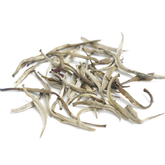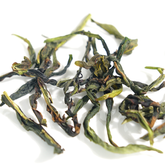Is Tea Good For Upset Stomach?|NPTEA
The majority of tea drinkers are wondering, "Can I drink tea when I have an upset stomach?" We will address this question in a scientific manner within this article. Tea itself contains many elements which are beneficial to our well-being and can smooth out stomach pain, especially for people who experience stomach pain resulting from stress, indigestion, or low-level inflammation. But not all teas are meant for all, and it is better to select tea according to your stomach health. For instance, ginger tea, peppermint tea, and green tea ease indigestion, bloating, and other stomach discomforts; Pu-erh tea stabilizes gastrointestinal function. For ailments like acid reflux or ulcers, we advise taking caffeine-free tea and not taking too much of it, as excessive consumption can worsen stomach problems. We note that tea doubles up on the stomach, and one must look at this on a case-by-case basis.
But not all teas are meant for all, and it is better to select tea according to your stomach health. For instance, ginger tea, peppermint tea, and green tea ease indigestion, bloating, and other stomach discomforts; Pu-erh tea stabilizes gastrointestinal function. For ailments like acid reflux or ulcers, we advise taking caffeine-free tea and not taking too much of it, as excessive consumption can worsen stomach problems. We note that tea doubles up on the stomach, and one must look at this on a case-by-case basis.
Components of Tea and Impacts on the Stomach
Tea Polyphenols.Tea polyphenols are the most important active compounds in tea, which have antioxidant, anti-inflammatory, and antimicrobial properties. Green tea contains a lot of polyphenols, especially catechins. Catechins have potent antioxidant and anti-inflammatory properties. In the stomach, they can reduce inflammation and inhibit the growth of pathogenic bacteria. For example, common pathogenic bacteria like E. coli can be suppressed to a certain extent by catechins, thus promoting a balanced gut microbiome and alleviating stomach ache caused by an imbalance of gut flora.
Caffeine.Caffeine is an alkaloid that occurs naturally in tea, coffee, and cacao plants. It acts on the central nervous system to cause alertness but also acts on gastric acid secretion, which might not be so good for those with sensitive stomachs. Caffeine leads to the stimulation of histamine receptors in stomach wall cells to release gastric acid. While stomach acid is important for digestion, too much of it can lead to erosion of the stomach lining.
Theanine.Theanine is an amino acid found in tea that has calming and relaxing effects, potentially helping to alleviate stomach discomfort caused by stress.
Polysaccharides.Polysaccharides in tea help protect the stomach lining, possibly easing stomach discomfort.
Organic Acids.Organic acids in tea (like tannic acid) may irritate the stomach, but moderate consumption usually doesn’t cause noticeable discomfort.
When to Skip Drinking Tea?
Stomach Ulcers and Duodenal Ulcers
The stomach or duodenal mucosa of such persons is weakened, and there are ulcers in them. Tea polyphenols and caffeine found in tea have the potential to trigger the discharge of stomach acid. Too much stomach acid tends to directly attack the ulcer and hinder its healing, aggravate the pain, and even bring about serious complications such as bleeding in the stomach.
Excessive Stomach Acid (Hyperacidity)
In individuals who already have excessive stomach acid secretion, tea drinking can also increase the secretion of stomach acid, worsening symptoms of heartburn and acid reflux. It will contribute to stomach pain and disrupt daily life and work.
Irritable Bowel Syndrome (IBS)
IBS is a common functional gastrointestinal disorder in which the intestines are hypersensitive. The components of tea may potentially cause intestinal motility, which could lead to symptoms like abdominal cramps, diarrhea, or constipation that can exacerbate the condition and hinder its stability and relief.

Post-Surgery for Stomach and Intestinal Procedures
After someone has undergone gastrointestinal surgery, the stomach is in a weakened recovery state and needs time to heal and return to normal function. Drinking tea, especially strong tea, during recovery can interfere with healing due to tea's stimulating phytochemical composition, adding additional stress to the stomach and hindering recovery.
Which Teas are Less Stomach-Friendly?
For people with sensitive stomachs or gastrointestinal issues, choosing the proper tea is crucial. Highly fermented teas like black tea and mature Pu-erh tea tend to be more stomach-friendly since they are less stimulating and warm in character. On the other hand, lightly fermented or unfermented teas like green tea and white tea usually irritate the stomach, especially when consumed on an empty stomach or by persons suffering from digestive issues. Some stomach-calming teas and their characteristics are discussed below:
| Tea Type | Fermentation Level | Characteristics | Suitable For |
| Black Tea | Fully fermented | Mild in nature, low in caffeine and polyphenols, less stimulating, helps warm the stomach. | People with cold stomach, excessive stomach acid, or indigestion. |
| Ripe Pu-erh Tea | Post-fermented | Rich in probiotics and polysaccharides, helps protect the stomach lining and aids digestion. | People with stomach ulcers, gastritis, or indigestion. |
| Dark Tea | Post-fermented | Mild in nature, aids digestion and regulates gut microbiota. | People with weak digestion or stomach sensitivity. |
| Aged White Tea | Lightly fermented | After long-term aging, its nature changes from cool to warm, reducing stimulation and offering anti-inflammatory benefits. | People with chronic gastritis or a weak stomach. |

Conclusion
The effect of caffeine on the stomach is double-edged: moderate use can help digestion and intestinal function, but excessive use or sensitivity to caffeine leads to excessive stomach acid production, acid reflux, and other gastrointestinal issues. In the case of stomach discomfort or sensitivity in the digestive system, less caffeine should be taken, one should avoid drinking tea on an empty stomach, and low-caffeine tea should be picked. If you consume caffeine in a scientifically proportional way, then you can consume tea without limiting its potential to harm your stomach.
SEE MORE CHINESE TEAS
If you have questions about selecting tea:
Learn-more-about-chinese-tea
If you have questions about the benefits of tea:
Health-benefits-of-chinese-tea
If you have questions about brewing tea:
How-to-brew-loose-leaf-tea






